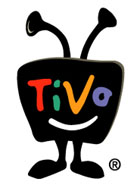TiVo patent double-standard?


Meanwhile, I joined the rest of the press in happily blasting companies like NTP and Eolas and MercExchange for their own patent cases, calling them patent trolls and worse. After TiVo's case, it occurred to me this might be a bit of a double-standard. Or is it?
Why is TiVo perceived as the good guy while NTP/Eolas/MercExchange are the bad guys? I believe one reason we think that way is purely selfish. We like our TiVos, we like our Blackberries, we even like our dynamic web content, and yes, we also like to Buy It Now thank you very much. TiVo (as a plaintiff) and RIM, Microsoft, and eBay (as defendants) were trying to maintain those things we use and like.
The second reason is a perception of obviousness. Whether it's true in a legal sense or not, there's a 'common sense' or 'man in the street' feeling that, say sending email over a wireless connection is obvious, or performing e-commerce of the Internet is obvious, but maybe backing up a few seconds when dropping out of a fast forward is not, or being able to watch the beginning of a show while still recording the end is not. This perception may be colored by the first, selfish reason, so it's hard to tell if it's valid or not.
Finally there's the perception of fair play that is so ingrained in our society. Take RIM for example. To over-simplify things a bit, they seemed to be minding their own business, building a successful product, when Bam! out of nowhere a company almost nobody heard of shows up waving a piece of paper and demanding a half billion dollars. Well that hardly seems fair does it?
And now tiny up-start TiVo is being trounced by the big bad cable and satellite companies (who, after years of sticking us with exorbitant monthly fees we're not exactly inclined to feel sympathetic towards) and simply wants to fight back to protect its software-based innovations. Nothing wrong with that, right?
But do you see the problem in this? Our perceptions are entirely formed by spin. With a different spin, MercExchange could have appealed to our heart-strings, talking about how this poor engineer demonstrated his ideas to the big boys to try to get some financing and in return they blew him a raspberry and used his idea to make billions without giving him a red cent. The 'court of public opinion' is a poor court indeed because it is so easily influenced.
So what to do? It's all so much easier if we say 'all patents are bad' and try to abolish the whole system of software patents. Once it starts getting into shades of gray, once we start saying, 'well, maybe some of them are ok', that's where we start to bog down.
I'd like to hear your opinion on this. Are all software patents bad? Are some good and some bad? How do we tell the difference objectively? How do we ensure the fairness and justice that any such system should embody?